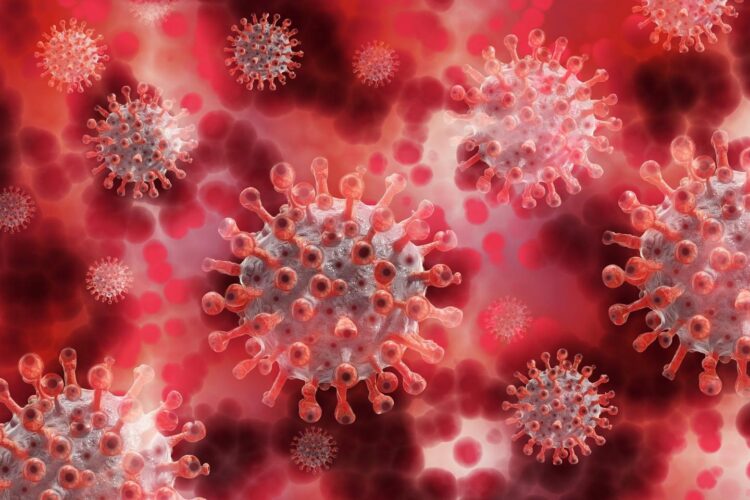An international team of researchers co-led by the University of Adelaide and the University of Arizona has analysed the genomes of more than 2,500 modern humans from 26 worldwide populations, to better understand how humans have adapted to historical coronavirus outbreaks.
In a paper published in Current Biology, the researchers used cutting-edge computational methods to uncover genetic traces of adaptation to coronaviruses, the family of viruses responsible for three major outbreaks in the last 20 years, including the ongoing pandemic.
“Modern human genomes contain evolutionary information tracing back hundreds of thousands of years, however it’s only in the past few decades geneticists have learned how to decode the extensive information captured within our genomes,” said lead author Dr Yassine Souilmi, with the University of Adelaide’s School of Biological Sciences.
“This includes physiological and immunological ‘adaptions’ that have enabled humans to survive new threats, including viruses.
“Viruses are very simple creatures with the sole objective to make more copies of themselves. Their simple biological structure renders them incapable of reproducing by themselves so they must invade the cells of other organisms and hijack their molecular machinery to exist.”
Viral invasions involve attaching and interacting with specific proteins produced by the host cell known as viral interacting proteins (VIPs).
In the study researchers found signs of adaptation in 42 different human genes encoding VIPs.
“We found VIP signals in five populations from East Asia and suggest the ancestors of modern East Asians were first exposed to coronaviruses over 20,000 years ago,” said Dr Souilmi.
“We found the 42 VIPs are primarily active in the lungs – the tissue most affected by coronaviruses – and confirmed that they interact directly with the virus underlying the current pandemic.”
Other independent studies have shown that mutations in VIP genes may mediate coronavirus susceptibility and also the severity of COVID-19 symptoms. And several VIPs are either currently being used in drugs for COVID-19 treatments or are part of clinical trials for further drug development.
“Our past interactions with viruses have left telltale genetic signals that we can leverage to identify genes influencing infection and disease in modern populations, and can inform drug repurposing efforts and the development of new treatments,” said co-author Dr Ray Tobler, from the University of Adelaide’s School of Biological Sciences.
“By uncovering the genes previously impacted by historical viral outbreaks, our study points to the promise of evolutionary genetic analyses as a new tool in fighting the outbreaks of the future.” said Dr Souilmi.
The researchers also note that their results in no way supersede pre-existing public health policies and protections, such as mask wearing, social distancing, and vaccinations.
###
The team involved in this study also included researchers from Australian National University and Queensland University of Technology.
Media Contact
Dr Yassine Souilmi
[email protected]
Original Source
https:/
Related Journal Article
http://dx.





